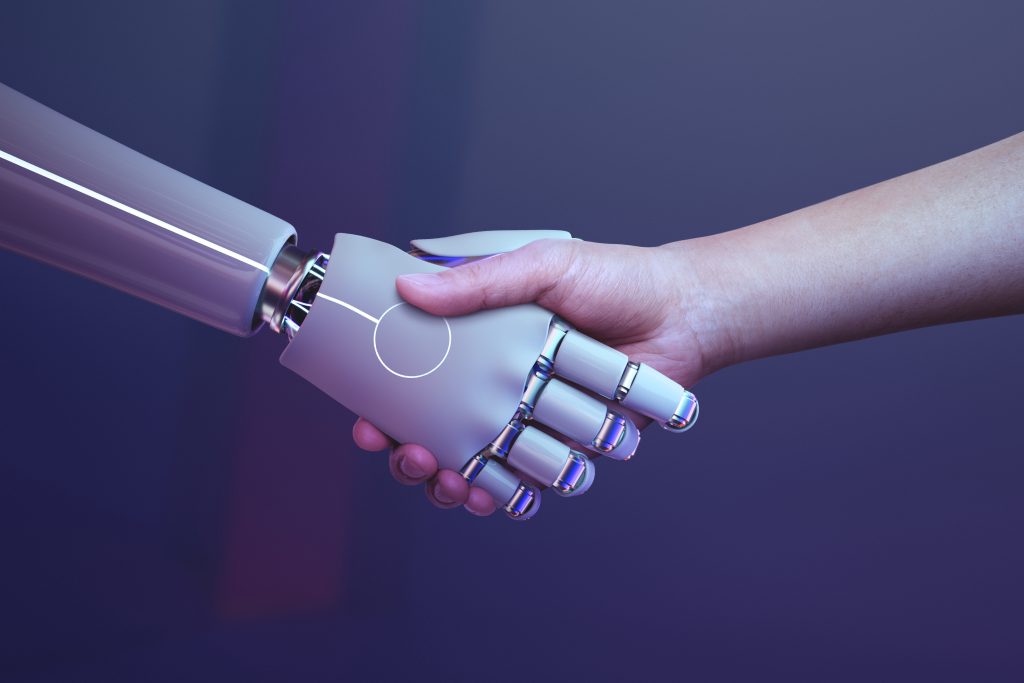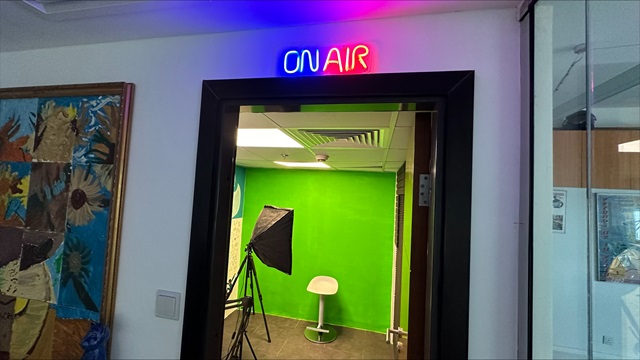AI is said to be one of the most important factors that will contribute to a big change in the world. The most common question asked is how this will impact our lives. Discussions have been ongoing between people who fear AI and claim it is a threat and others who claim it will benefit humanity.
What is AI?
The full form of AI is “Artificial Intelligence”, defined by the English Oxford Living Dictionary as the “theory and development of computer systems able to perform tasks normally requiring human intelligence.”
How does AI stand out?
AI has been created to do tasks that humans do; therefore, it is expected to play an important role in how we will live in the future. In a Pew Research Center article, Janna Anderson and Lee Rainie (2018) talk about experts’ predictions that computers might match or even exceed human intelligence and capabilities on tasks such as complex decision-making, reasoning, and learning. In addition to that, there is expectations that AI will be taking human jobs, as according to a report by investment bank Goldman Sachs, Artificial intelligence (AI) could replace the equivalent of 300 million full-time jobs.

AI from the other side
Other experts claim that AI is expected to threaten human existence, contributing to human extinction. A question that is being asked is, what would happen if AI took over most of the human tasks, will our lives still be normal? Kevin Collier, in an article on NBC News, mentions an important statement saying that “Mitigating the risk of extinction from AI should be a global priority,” which was signed by some of the biggest names in the field Including Bill Gates, Sam Altman, CEO of OpenAI, and Demis Hassabis, CEO of DeepMind Technologies. This raises the alarm among AI experts that AI technology could lead to the end of the human race.

AI in the Middle East
When it comes to the Middle East, AI is expected to create major changes, research by PwC Middle East indicates that the region is expected to accrue 2% of the global benefits of AI in the year 2030, and it is also expected that Saudi Arabia will get most of the AI contribution (as shown in the diagram below), followed by the UAE, the GCC 4 countries, which include Qatar, Oman, Bahrain, and Kuwait, and then Egypt.
What is the take on AI in the Middle East?
The governments in the UAE and Saudi Arabia have labeled AI as one of the crucial factors that will contribute to developing their countries. The UAE launched its “Strategy for Artificial Intelligence (AI)” in October 2017, which aims to make the UAE the first in the field of AI investments across different sectors, as well as boost government performance at all levels using AI. On the other hand, one of the key topics under the 2030 vision of Saudi Arabia is also AI, the country’s ambition is to turn into a global leader in AI and data, as well as to rank among the top 15 countries in this area.
Which sectors will AI impact first?
The first targeted sectors in the Middle East are the healthcare and sustainability sectors, in which AI will play a crucial role. AI is effective in detecting dangerous diseases at early stages and finding the best solutions for curing patients, a report by Gulf Today indicates that the UAE’s strategy for AI in the health sector is reducing the percentage of chronic and serious diseases. On the other hand, the sustainability sector is receiving attention from governments in the Middle East, especially the UAE and Saudi Arabia, where sustainability is a priority. AI can be used to get a high output while decreasing energy consumption and pollution, and that is how it can be effective in the sustainability sector. Overall, these are the first sectors that are expected to adopt AI, this is where it will be needed the most in the region, and then will be used in many other sectors, like education, e-commerce, and logistics.
Will AI leave us without jobs?
With the launch of ChatGPT in 2022, it became very clear that AI can complete various human tasks on its own, which left people worried about whether it will replace their jobs or not. Investment Bank Goldman Sachs reported that AI could replace the equivalent of 300 million full-time jobs. However, this should not leave people afraid that AI will completely take over their jobs. What should be done is that AI tools and skills should be learned and acquired, as when AI starts taking over jobs, that creates the need for people to have the skills needed to use and manage AI systems, opening the door to more skills and tasks that will be needed for the global market. In conclusion, the impact that AI has in our world is increasing day by day, but that does not mean that we should start to think of it as a real threat. We at Active DMC believe AI can give us different solutions and we have to think of the best ways to utilize it. In addition to that, AI will
need a guide that would make it process in the right way, giving room for new jobs to support it. Therefore, although it is very likely to replace some jobs, it will provide even more for the market, especially in countries like the UAE and Saudi Arabia, where governments are creating effective strategies for utilizing AI.
If you want to talk to us about AI or if you are a company operating in this field and want the world to know, contact us – layal@activedmc.com.
Data References:
https://www.forbes.com/sites/bernardmarr/2018/02/14/the-key-definitions-of-artificial-intelligence-ai-that-explain-its-importance/?sh=24d9112a4f5d
https://www.techtarget.com/searchenterpriseai/definition/AI-Artificial-Intelligence
https://www.bbc.com/news/technology-65102150
https://www.pwc.com/m1/en/publications/potential-impact-artificial-intelligence-middle-east.html
https://www.pewresearch.org/internet/2018/12/10/artificial-intelligence-and-the-future-of-humans/
https://mepei.com/saudi-arabia-and-artificial-intelligence/
https://www.gulftoday.ae/news/2023/06/07/dubai-to-establish-first-integrated-centre-to-attract-artificial-intelligence-companies
https://www.arabnews.com/node/2204951https://www.bbc.com/news/technology-65102150
https://joshbersin.com/2023/04/why-is-the-world-afraid-of-ai-the-fears-are-unfounded-and-heres-why/https://www.bbc.com/news/technology-65102150
https://joshbersin.com/2023/04/why-is-the-world-afraid-of-ai-the-fears-are-unfounded-and-heres-why/



